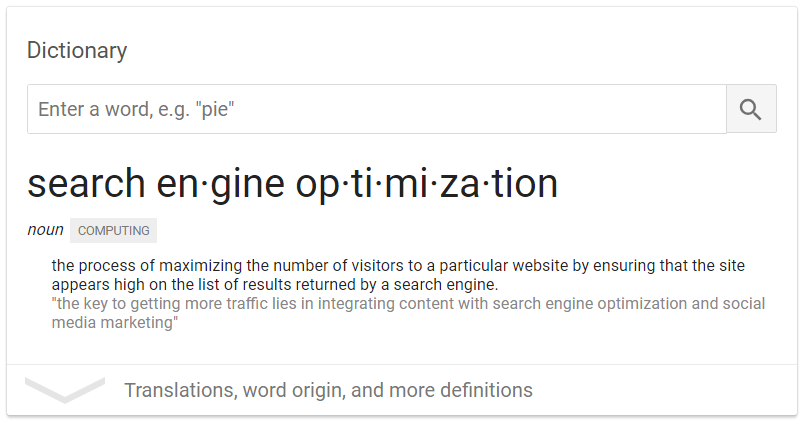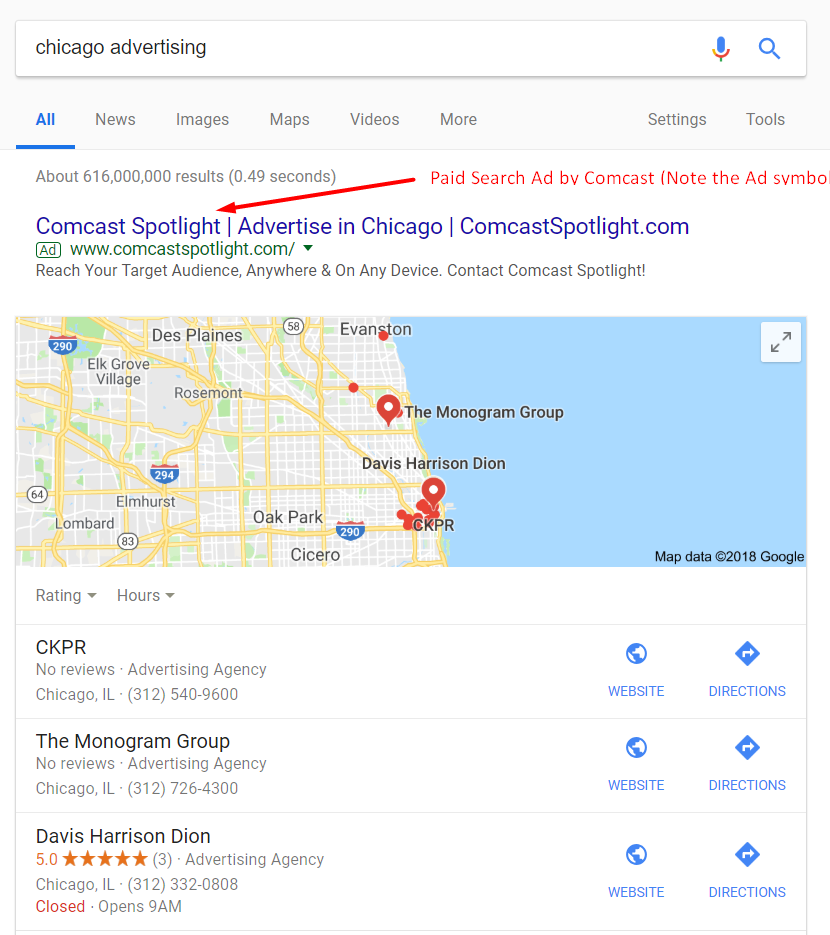SEO vs. SEM: What’s the Difference?

What is the difference between search engine optimization and search engine marketing? These two concepts get thrown around interchangeably when businesses talk about online marketing strategy, but there are actually quite a few key differences that set these two strategies apart.
In this post, we’ll break down what marketers mean when they talk about SEO, how SEM is a different concept, and how they can both be used to help bolster your brand’s digital presence.
What is Search Engine Optimization (SEO)?

SEO or Search Engine Optimization refers to the combined tactics and efforts intended to improve a website’s search engine ranking organically, and in turn, the number of visitors that land on the website.
Many believe that SEO only refers to ranking highly on Google (it is the most popular search engine after all), but SEO can refer to any search engine.
SEO tactics can be divided into two categories – On-page and Off-page:
On-Page SEO Tactics
- Keyword research and frequency – the popularity of the used keyword, relevance of the topic, and the natural usage throughout the blog.
- High-quality content throughout the website
- Site structure and URL layout
- Page speed and performance
- Authority, or how frequently you link to trusted and reputable
- Mobile-optimization
- User experience
- And countless more.
Off-Page SEO Tactics
- Strong backlink profile (the number of trusted and reputable websites that lead back to your website)
- Social shares (Facebook, Twitter, Google Plus, and so on)
- Social bookmarks (Reddit, Stumbleupon)
- And countless more.
What is Search Engine Marketing (SEM)?
Search Engine Marketing or SEM refers to the use of paid advertising (such as PPC) to increase visibility on search engine results pages.
Whenever you type a certain keyword, phrase, or sentence in Google and other search engines, there are typically a couple results right at the top:

Paid advertising has become a huge, multibillion-dollar business in recent years. Since paid ads go straight to the top of the page, a growing brand can gain more visibility and capture more traffic. A popular brand will typically purchase paid ads anyway just to maintain market share.
SEM is typically broken up into two different cost models:
- Pay-per-click (PPC) ads, which only charges advertisers for every user click on a search ad. CPC (Cost-per-click) refers to the actual cost of each click.
- Cost-per-thousand (CPM), refers to the process (and specific cost) of paying per one thousand views of a certain ad.
On top of cost, another consideration is how the ads are written and laid out. Marketers can spend hours testing combinations of various copy, images, links, calls-to-action, and marketing tools just to get the best results.
What is Search Marketing?
Finally, Search Marketing is the combination of paid (SEM) and unpaid (SEO) efforts. Essentially, the term has come to reflect all the different tactics involved in increasing a brand’s visibility on various search engines.
In the past, search marketing was referred to as search engine marketing. Today, however, marketers use SEM to refer to paid advertising, while search marketing acts as a catch-all term.
Which strategy is best for my brand?
It really depends. SEO is great for ranking organically. Modern-day customers tend to be put off ads and sales material, so the key is to attract and engage customers through useful and relevant content, whether it’s a “how-to” guide, an informative article or video, or other content users will want to interact with.
On the other hand, certain industries are so saturated that any potential competition is drowned out. In these situations, paid advertising can help level the playing field. Since search ads appear right at the top, SEM becomes a pay-to-win game. However, you’ll still need a solid strategy to get a positive ROI.
So which one is the best for your brand? Ideally, a combination of both. The best marketers know that employing one strategy is usually not enough. Both SEO and SEM perform better when they work in tandem. Paid advertising would be pointless without a well-optimized website, and SEO can always be further boosted with a solid, complementary SEM strategy.
Think of SEM as yin and yang- the two forces may be very different from each other, but they can work together to help your brand and achieve your business goals
Search marketing fit for your brand
Curious to find out how your brand can gain from a robust, well-researched search marketing strategy? From content to PPC, there’s a lot we can do. Learn what it takes to craft a solid search marketing strategy today.

